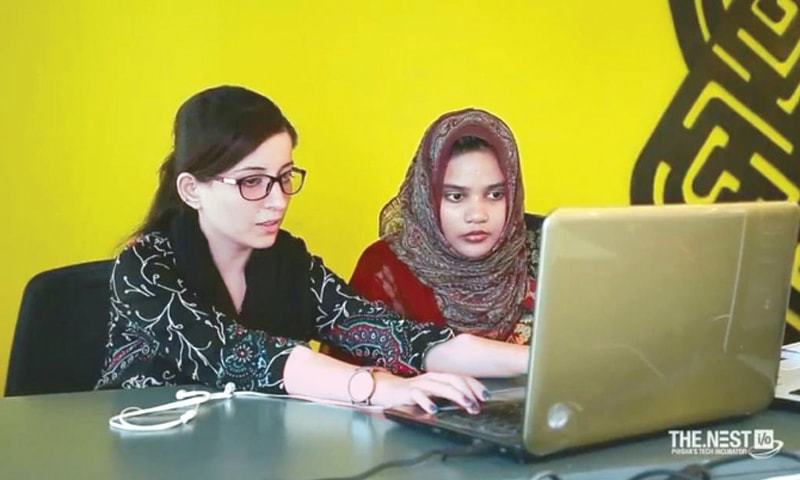TECH TALK: A healthcare startup targets speech impediments

BoloTech is an online portal to help people with speech impediments by inculcating tech-based learning and feedback to improve their pronunciation and develop speech muscles. This Karachi-based healthcare startup is seeking to change the way Urdu speech therapy is practised.
The process involves showing the reader a picture of an object to be practised along with its text, a video that plays/lip syncs the sound while the webcam tracks pronunciation and muscle movement, providing due feedback. The tech aims to replicate the elements of a traditional speech therapy session without the involvement of an actual therapist. This is augmented by a specially designed curriculum, Urdu phonetics and interactive games to improve speech muscle coordination and enhance language fluency.
Given the financing constraints, what’s BoloTech plan for future growth? Building on their base and expertise in Urdu and software development, they have come up with Ibarat – an Urdu speech-to-text convertor – which takes dictations and converts them into written text.
But can technology really replace human intervention when it comes to speech therapy? Well, to an extent. “Most of our customers (parents) use it as an alternative to the traditional therapy given financial constraints, but it will obviously work best in a clinical setting,” Rabab says.
“The way traditional therapy generally works is a speech pathologist yells words at learners who are then asked to repeat until they are pronounced right. And if they are unable to do so, same lesson is done all over again in the next session,” explains co-founder Shanza. BoloTech’s approach is somewhat different though: their portal tracks each session and there’s a sort of report card to ascertain progress.
The product is largely aimed at kids with speaking challenges since learning is relatively easier at that age but adults use it too. “We do have some demand from people who lost their ability to speak after strokes or accidents and they have to begin all over again,” co-founder Rabab says.
The idea occurred to Rabab Fatima and Shanza Khan during their final year of software engineering degree when they realised a need for software-based solution in speech and communication domain. In January 2017, their project was incubated at the Nest I/O and is now a part of the accelerator programme at the National Incubation Centre, Karachi.
The question that readily comes to mind is how can two engineers – without the relevant expertise – change the approach towards speech therapy? Well, they are mostly limited to the tech and business side. “We have professional therapists building the curriculum for us so it’s in line with standard industry practices,” claims Shanza.
How do they make money? They employ a subscription-based model charging individual users monthly while for professional therapists and schools/hospitals, there are different costing structures.
BoloTech’s biggest strength lies in its accessibility and affordability. “The monthly expenditure for clinical treatment can cost up to Rs30,000 and there aren’t too many practitioners outside major cities. So if you’re form a small town, you have to commute all the way to city, pay for boarding and lodging as well. On the other hand, our product costs Rs5,000 a month and can be used remotely,” explains Shanza.
So far the duo has been largely self-funded with a few grants here and there, but money troubles are now hitting them hard. “We have pitched our portal to quite a few hospitals and they really liked it as well but when it comes to money, they aren’t interested anymore,” Shanza tells Dawn. There hasn’t been much success in getting institutional partners and individual customers are not enough to sustain the business.
The duo is hopeful that this software will be a big hit in news organisations and media in general, where Urdu typing is a real pain. “We are optimistic that this will kick off and give us a financial relief so we can divert those resources towards BoloTech,” Rabab shares.
If you’re confused as to how or why a healthcare startup decided to develop an alternative for Urdu keyboard, you aren’t the only one. But there’s actually a good reason. Over the past year or so, the company has built an Urdu library from speech therapy session. How? All the sounds that go in during a session are processed and those that are phonetically correct according to their in-house acoustic model are stored on cloud and fed into the library, and then Ibarat.
Referring to a report from Dawn, BoloTech says there are around 22 million people in Pakistan suffering from some form of speech impediment, with very few having access to treatment. To what extent can the startup change that remains to be seen.
